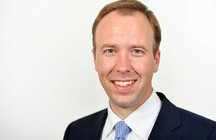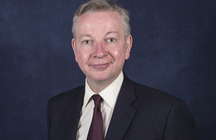Matt Hancock – 2016 Speech on Tackling Corruption

Below is the text of the speech made by Matt Hancock, the Minister for the Cabinet Office and Paymaster General, in London on 11 May 2016.
Thank you Patricia, our new and brilliant Secretary General of the Commonwealth.
Mr President, it is an honour to welcome you here, with united determination to tackle corruption. I pay tribute to the work you have led and leadership you have shown.
Everyone here today, from Civil Society, from business and from governments around the world stands testament to that determination.
We are here today because of what we share: The view, forged by experience, founded in evidence, not just, that corruption is an evil in itself – and that surely is so – not just that corruption exacerbates other evils of poverty and extremism and want but that together, as global community, we know endemic corruption can be wiped from this Earth.
Corruption is the cancer at the heart of so many of the world’s problems.
But there is nothing permanent about countries being held back by its scourge.
There is nothing inevitable about the injustice it represents.
Corruption is made by man and it is within man’s gift to end it.
It will not be easy. The forces ranged against are powerful and strong.
But we here are the optimists.
This week marks the world’s first international summit dedicated to the eradication of corruption.
The goal is to make the fight against corruption a priority for world leaders.
The summit will tomorrow discuss, and, with effort, agree to, commitments aimed at seeing a real reduction in global corruption.
Attended by people from across the world, from countries each at different stages of taking on this challenge.
For corruption exists in every country to different degrees. No matter what the starting point, what matters is our shared determination to tackle the problem.
We are bringing together world leaders, business and civil society to agree a package of practical steps to expose corruption, so there is nowhere to hide; punish the perpetrators, and support those affected, and drive out the culture of corruption wherever it exists.
Now it’s worth taking a moment to reflect on the scale of the challenge, and why we are here to tackle it.
The cost of corruption
First, the cost.
Consider just the economic costs.
On top of the lives ruined and the immorality.
The economic costs are stark.
It is estimated that corruption adds 10% to business costs globally and that cutting corruption by just 10% could benefit the global economy by $380 billion every year.
Corrupt practices inhibit business; precious resources are whittled away directly in bribes, and indirectly in biased decisions.
Customers, honest businesses and taxpayers pick up the bill.
And these direct costs are just the start.
Other effects of corruption
Opportunities are lost; lives blighted; investment hindered; and the chance for people to get on and get up and make the most of the world around us and fulfil their potential – all this is held back.
And it is not the well off who suffer the most.
It is very poorest who are hardest hit.
Those for whom there is no escape.
In their name it is our duty to act.
And let us share another honest truth.
Let us openly admit this fault.
When it comes to tackling corruption, the international community has looked the other way for too long.
For too long.
We simply can no longer afford to side-step corruption: we must step up.
That is our task today.
What the UK has done
Prime Minister Cameron has put corruption on the agenda as never before: at the G7, the G20, the OECD and the United Nations.
We want to work through the existing international infrastructure – not to invent another layer, but to convert the multinational system to the task.
We are taking the lead in calling the summit.
And we are not just talking but acting at home.
It was my privilege to pilot through Parliament the rules to establish a public central registry of beneficial ownership.
When this goes live next month we will be the first in the G20 to do it.
It is now in the UK a criminal offence for a company to fail to prevent a bribe being paid.
We are driving open data, transparency and open contracts.
And we will now make it a criminal offence for corporations who fail to stop their staff facilitating tax evasion.
But no government, working alone, can tackle this problem.
In an increasingly inter-connected world of instant communication and mobile capital, no country is immune from the threat posed by corruption.
And no country can fight it alone.
We are making progress.
Good governance is now at the heart of the Sustainable Development Goals to transform the way the international community fights poverty.
We have created a new international anti-corruption unit in the UK’s National Crime Agency, to recover funds stolen from developing countries and prosecute those responsible.
Over the next 36 hours we must aim high for an agreement among governments to the next vital steps.
Yet governments do not operate in a vacuum.
A strong civil society has a critical role to play, holding us in government to account and driving innovation in the detection and reporting of corruption. Tomorrow we will launch our Open Government Partnership National Action Plan, developed with civil society.
Technology gives us an opportunity for openness. And business must play its part.
Conclusion
We all have our part to play.
So let us seize this moment.
This is the time.
Corruption is a global problem that demands co-ordinated action.
We must act together so there is no hiding place for those that perpetrate, the corruption that spreads injustice and divides our world.
Let us today resolve.
That while, yes, the task is hard.
Surely, the prize is worth it.
So let us work to our objective, with optimism and ambition, and deliver our goals in the interests of the citizens who we serve.

